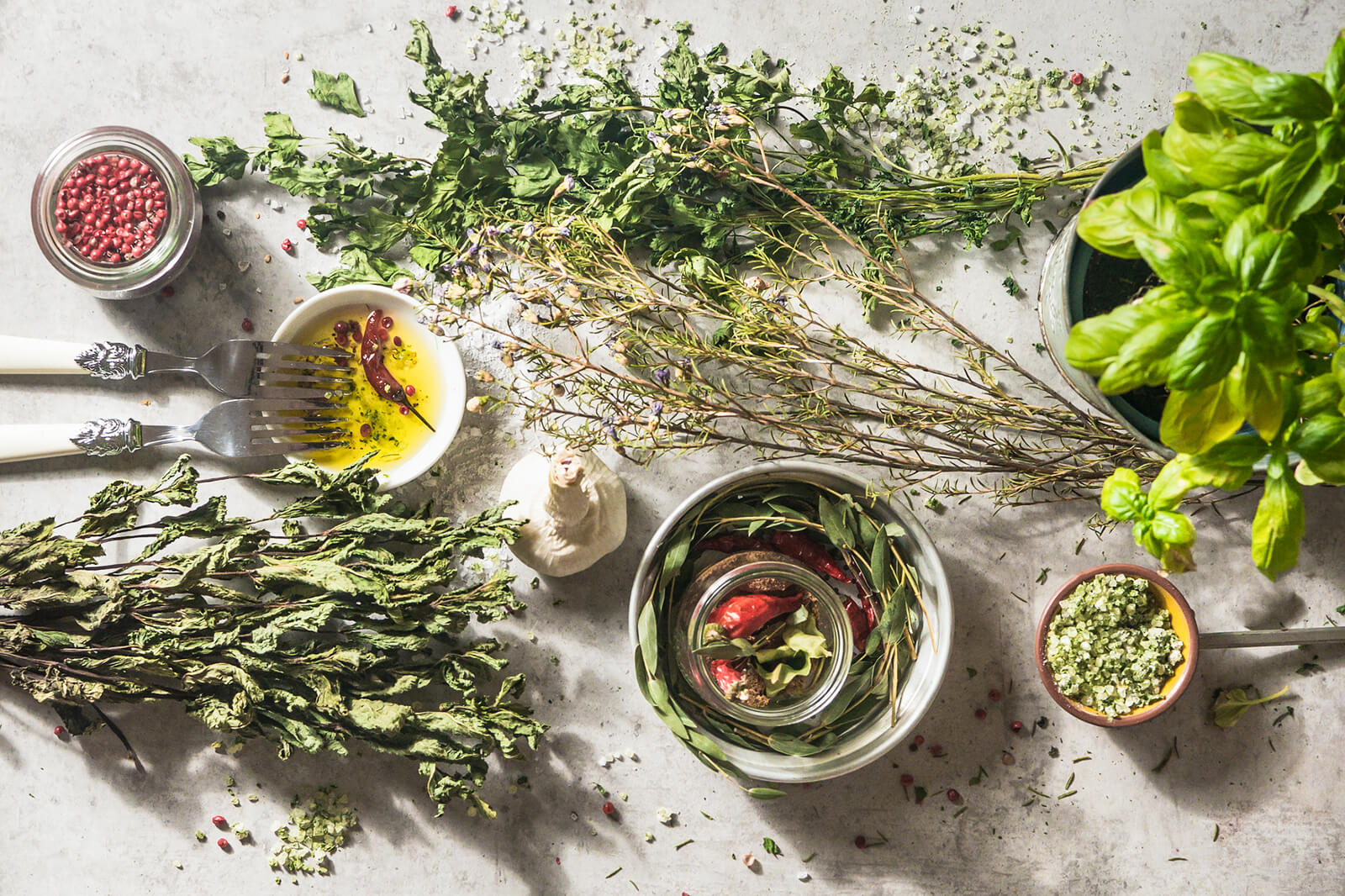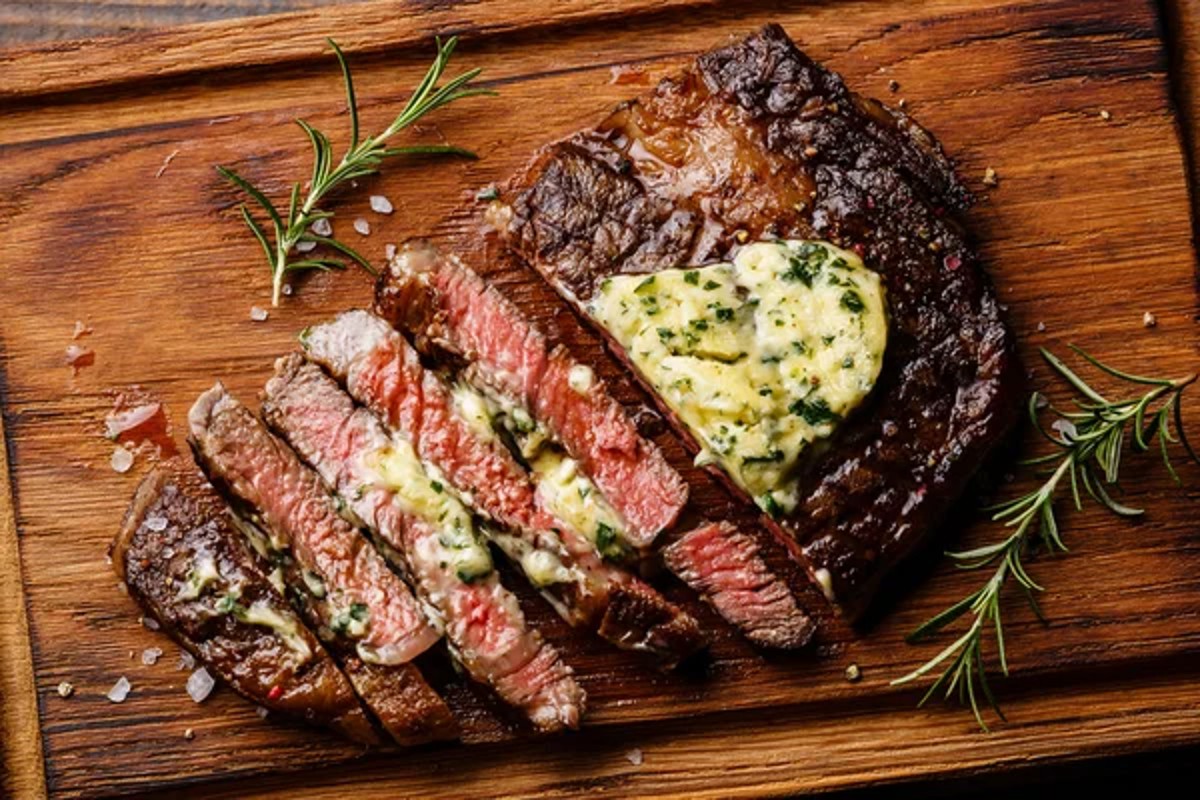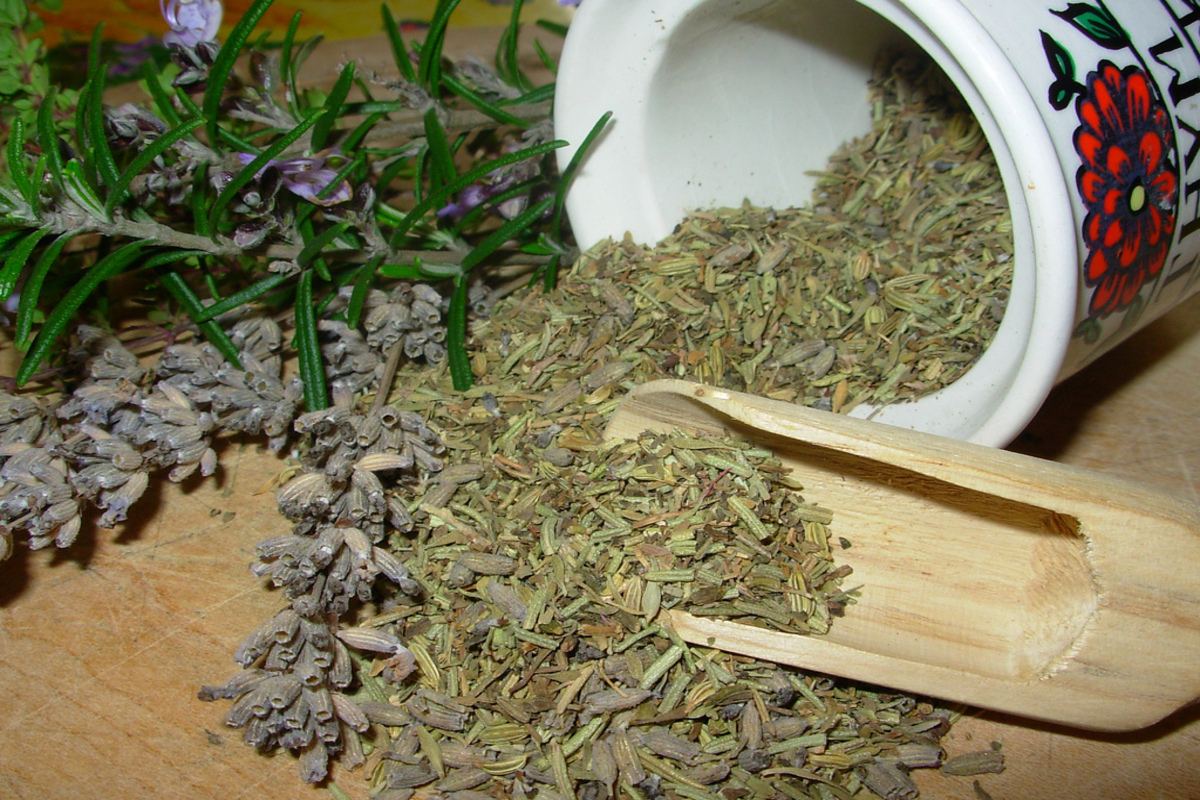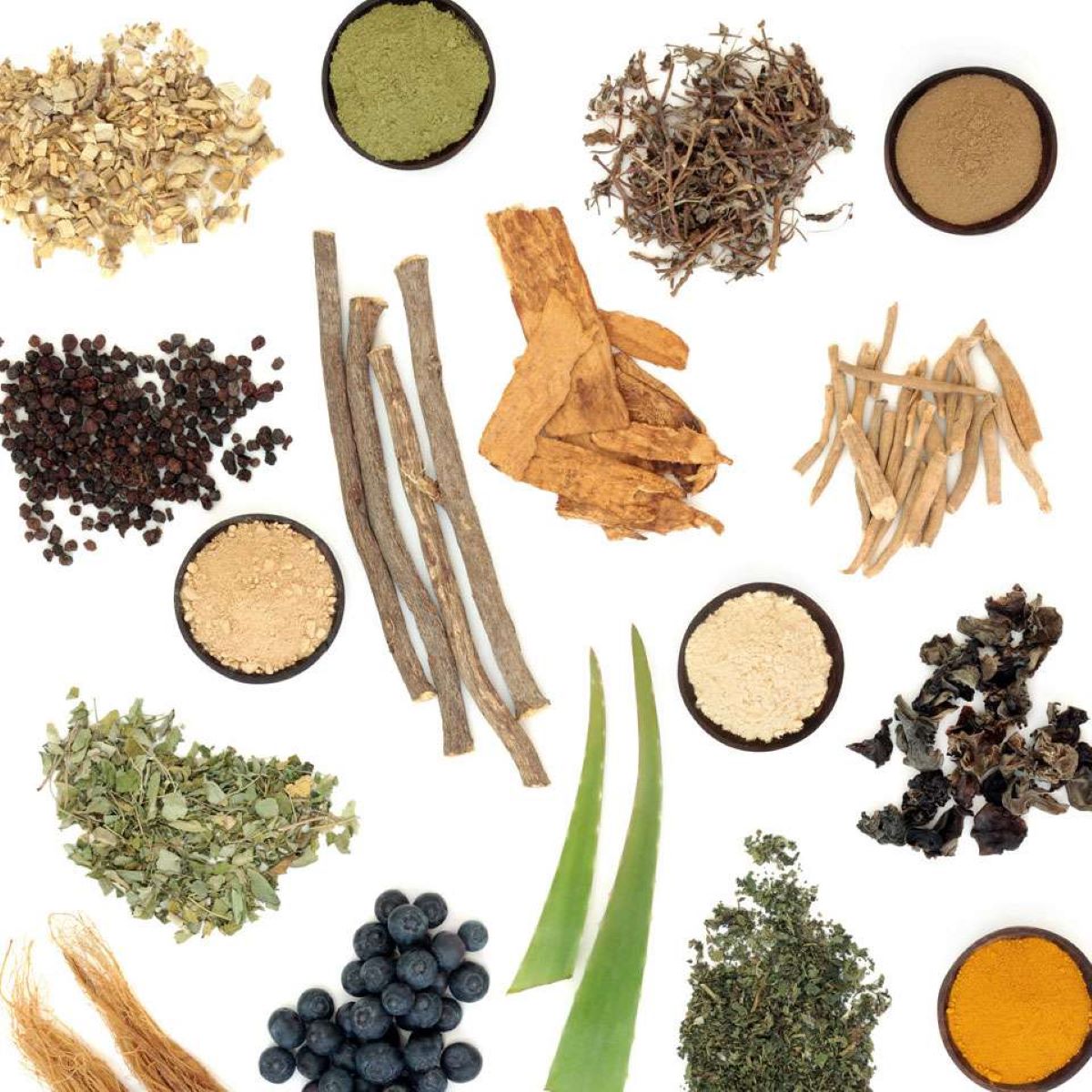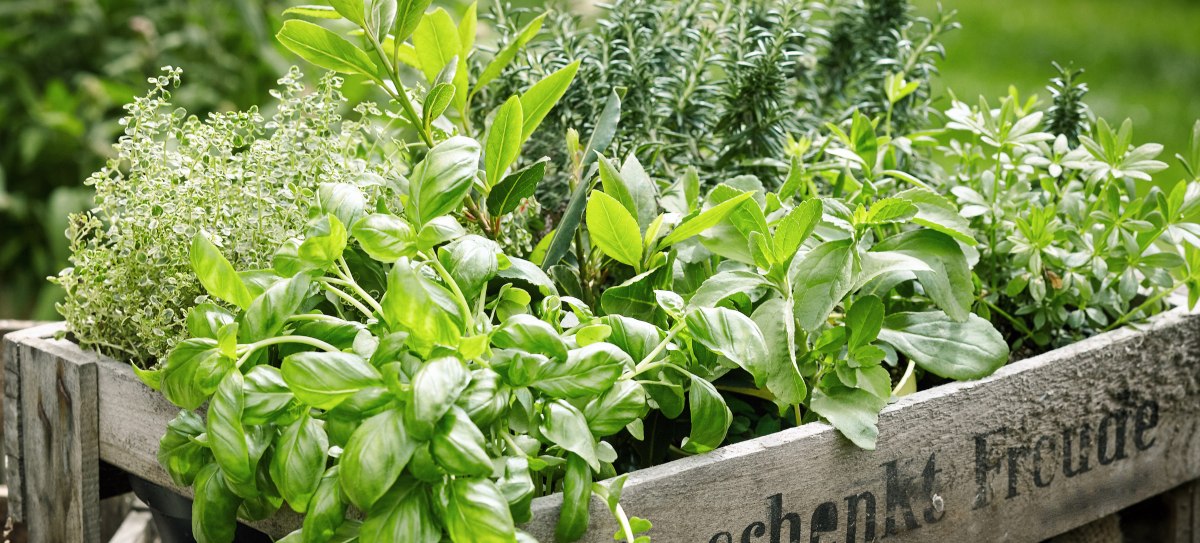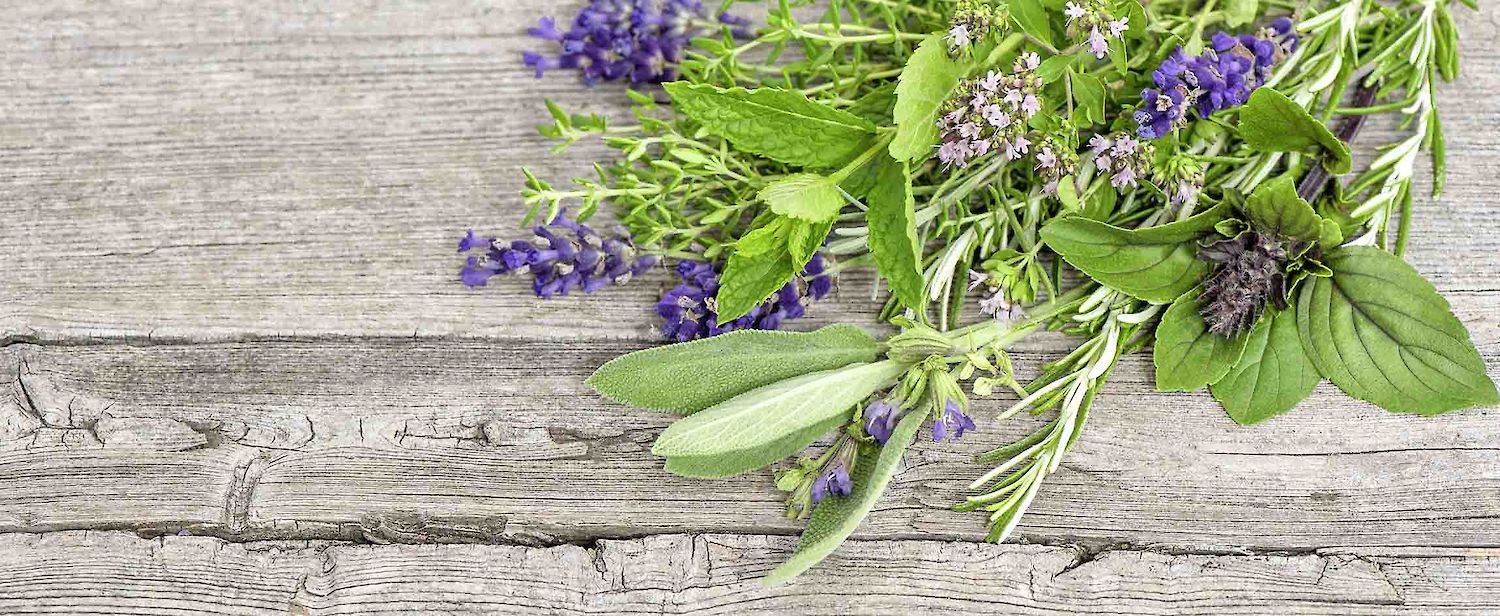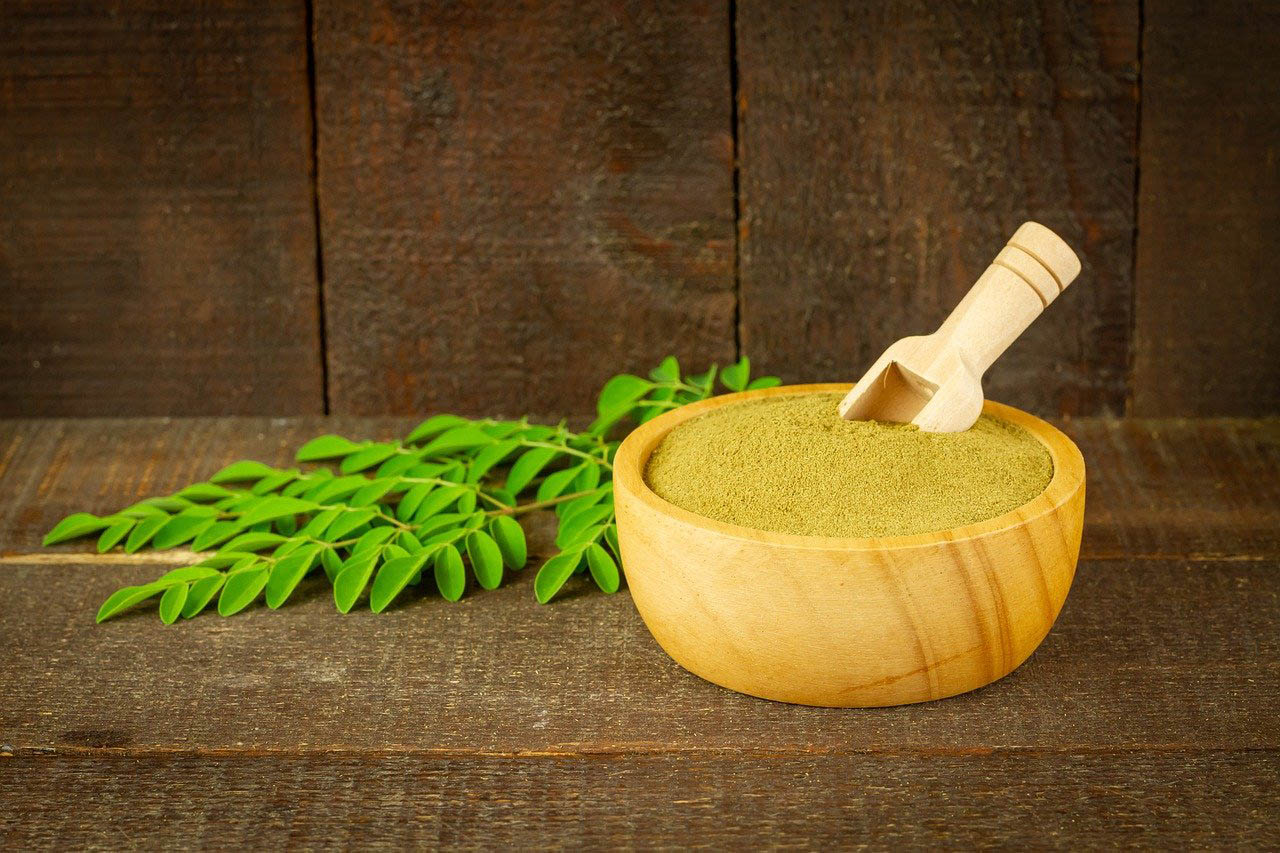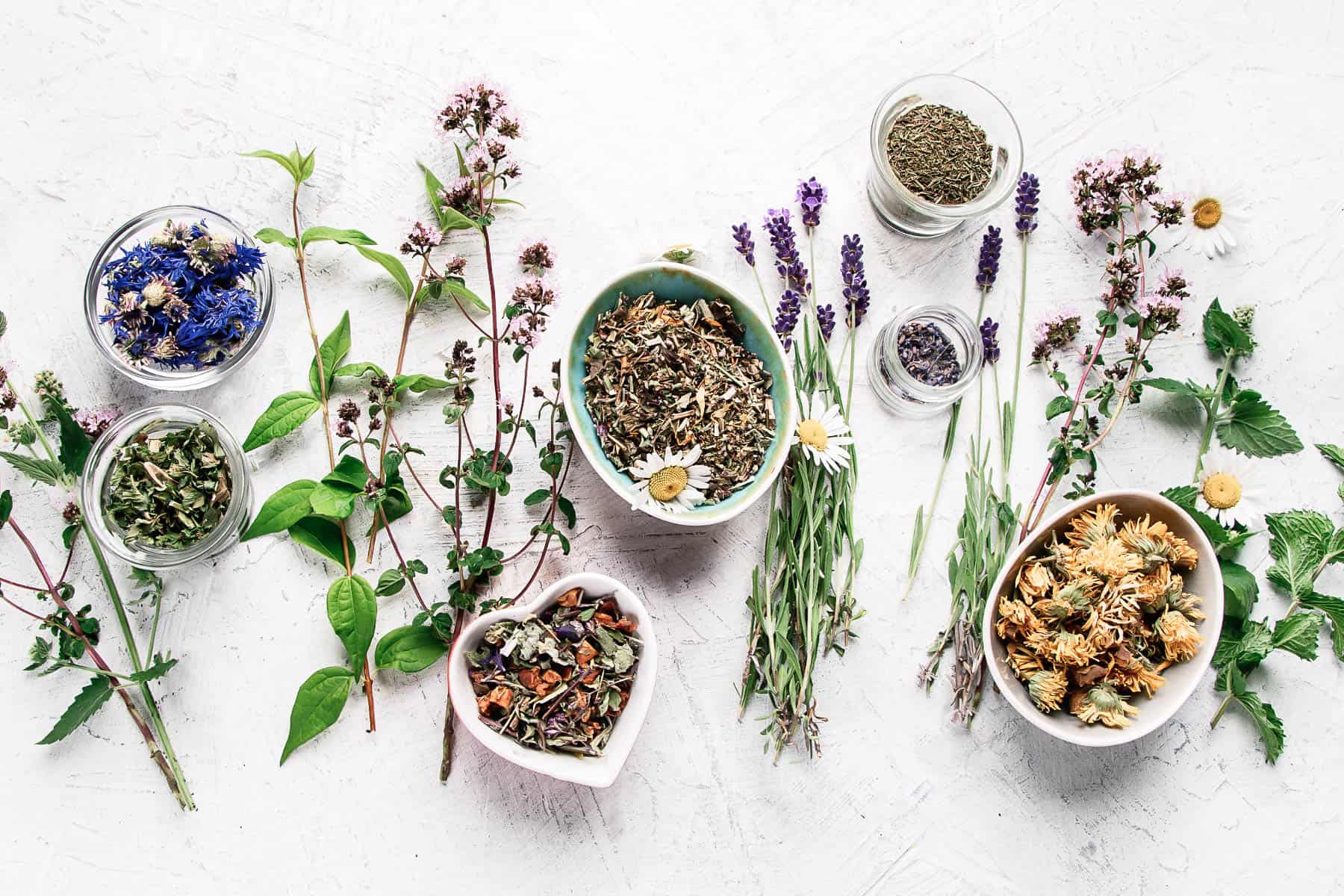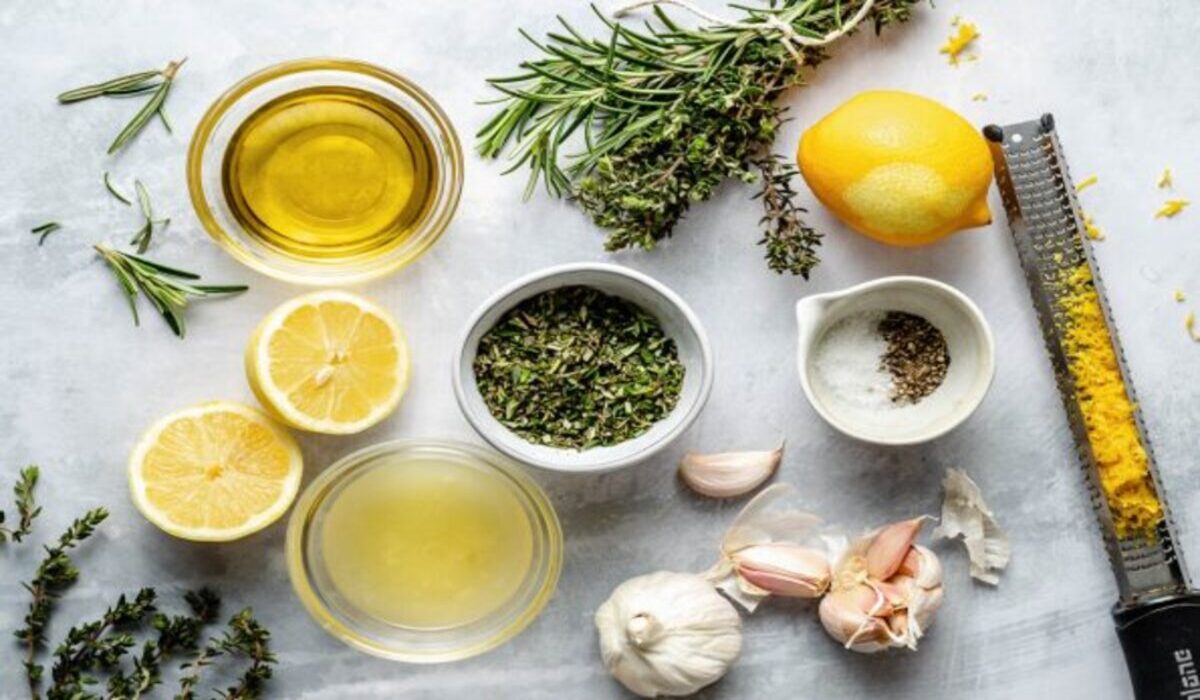Home>Gardening News and Trends>Gardening Trends>What Herbs Are In Herb Butter
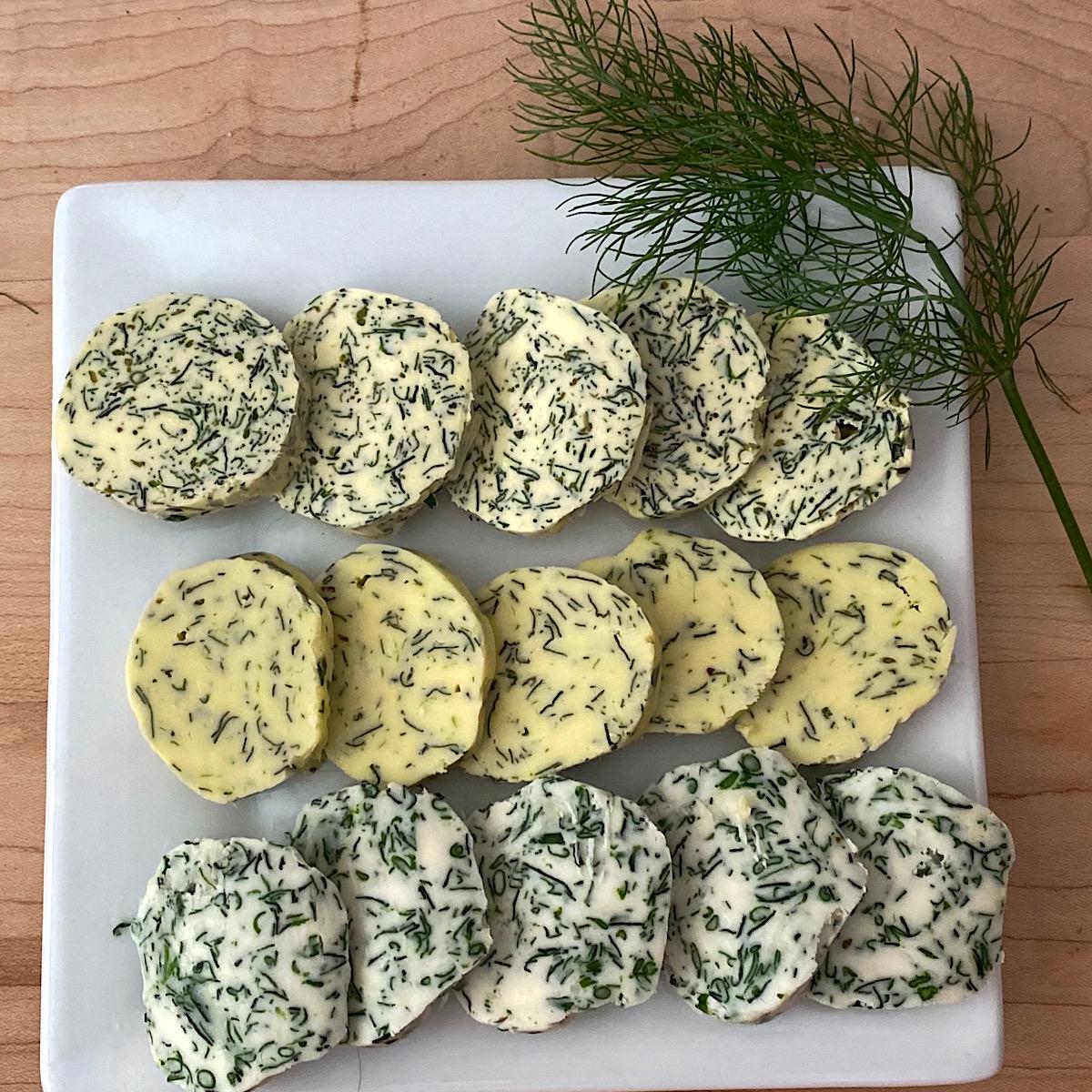

Gardening Trends
What Herbs Are In Herb Butter
Modified: January 22, 2024
Discover the latest gardening trends and learn about the herbs commonly used in herb butter recipes. Enhance your culinary experience with these fragrant and flavorful ingredients.
(Many of the links in this article redirect to a specific reviewed product. Your purchase of these products through affiliate links helps to generate commission for Chicagolandgardening.com, at no extra cost. Learn more)
Table of Contents
Introduction
Herb butter is a delicious and versatile condiment that adds a burst of flavor to a variety of dishes. Whether spread on a fresh baguette, melted over grilled vegetables, or used to baste a juicy steak, herb butter elevates any meal to a new level of taste. But have you ever wondered what herbs go into this delectable spread? In this article, we will explore the common herbs used in herb butter and delve into their unique flavors and benefits.
Herb butter is a classic compound butter that combines softened butter with finely chopped or blended fresh herbs. The result is a smooth and creamy mixture with a fragrant and savory taste. One of the best things about herb butter is its versatility. It can be customized to suit your preferences or the specific dish you are preparing.
While there are countless herb combinations you can experiment with, certain herbs have become staples in herb butter recipes due to their distinct flavors and harmonious pairing with various ingredients. In the following sections, we will explore ten popular herbs commonly used in herb butter and discover how their unique characteristics can enhance your culinary creations.
Overview of Herb Butter
Before we dive into the specific herbs used in herb butter, let’s take a moment to understand the overall concept of this flavorful condiment. Herb butter, also known as compound butter, is a mixture of softened butter and fresh herbs. It is easy to make and brings a burst of flavor to a wide range of dishes.
The process of making herb butter involves blending or finely chopping fresh herbs and incorporating them into softened butter. This can be done by hand or with the help of a food processor, depending on your desired texture. The mixture is then shaped into a log or placed in a container, refrigerated until solid, and sliced or spooned as needed.
The beauty of herb butter lies in its versatility. It can be used as a spread on bread, a topping for grilled meats or vegetables, a finishing touch for roasted dishes, or as a base for sautéing. The possibilities are endless, and the flavors can be adapted to suit the dish you are preparing.
Herb butter not only enhances the taste of your dishes, but it also adds an attractive visual element with specks of green herbs running through the rich, creamy butter. It can elevate even the simplest of meals, adding a touch of elegance and sophistication.
Additionally, making herb butter allows you to take advantage of the health benefits of fresh herbs. Many herbs used in herb butter are known for their antioxidant properties, vitamins, and minerals. Incorporating these herbs into your diet through herb butter is a delicious way to reap these benefits.
Now that we have gained a better understanding of the concept and versatility of herb butter, let’s explore the specific herbs that are commonly used in this delectable condiment.
Common Herbs Used in Herb Butter
When it comes to creating herb butter, there is a wide array of herbs to choose from. Each herb brings its own unique flavor profile and aroma, allowing you to create herb butter that perfectly complements your dishes. Here are ten common herbs used in herb butter:
- Basil: With its sweet and slightly peppery taste, basil adds a fresh and vibrant flavor to herb butter. It pairs well with tomatoes, pasta, and grilled vegetables.
- Parsley: A versatile herb, parsley provides a clean and slightly bitter taste to herb butter. Its bright green color adds visual appeal. Parsley works well in seafood dishes, roasted meats, and salads.
- Rosemary: Known for its strong pine-like aroma, rosemary adds a robust and earthy flavor to herb butter. It pairs superbly with roasted potatoes, lamb, and poultry.
- Thyme: With its subtle lemony and minty undertones, thyme brings a delicate yet distinctive flavor to herb butter. It complements roasted meats, soups, and stews.
- Dill: Dill boasts a fresh and tangy flavor with hints of anise. It pairs exceptionally well with fish, salads, and potatoes. Incorporating dill into herb butter brings a unique twist to your culinary creations.
- Chives: With a mild onion-like flavor, chives add a delicate and slightly sweet taste to herb butter. They are a perfect addition to creamy dishes, scrambled eggs, and baked potatoes.
- Sage: Sage has a distinct flavor with hints of mint, lemon, and eucalyptus. It adds a warm and earthy taste to herb butter, making it a great choice for stuffing, pasta dishes, and roasted vegetables.
- Cilantro: Cilantro is known for its bright and citrusy flavor. It adds a refreshing and zesty dimension to herb butter, making it ideal for Mexican or Asian-inspired dishes, salsas, and marinades.
- Mint: Mint brings a cool and refreshing flavor with a hint of sweetness to herb butter. It works well in both savory and sweet dishes, such as roasted lamb, salads, and desserts.
- Oregano: A staple in Italian cuisine, oregano adds a robust and peppery taste to herb butter. It is an excellent addition to pasta dishes, pizzas, and grilled meats.
These are just a few examples of the herbs commonly used in herb butter. Feel free to mix and match herbs according to your preferences and the flavor profile you desire. Experimenting with different combinations will allow you to create unique and delicious herb butter that perfectly complements your favorite dishes.
Basil
Basil is a popular herb used in cuisines around the world, and it also makes a fantastic addition to herb butter. Known for its sweet and slightly peppery taste, basil adds a fresh and vibrant flavor to any dish.
When incorporated into herb butter, basil infuses its aromatic qualities, creating a delightful and fragrant spread. The bright green color of basil leaves adds an attractive visual element to the butter, making it appealing to both the eyes and the taste buds.
Basil pairs exceptionally well with tomatoes, making it a great choice for incorporating into herb butter for caprese salads, bruschetta, or tomato-based pasta dishes. It also complements grilled vegetables, such as zucchini and eggplant, bringing a burst of freshness and enhancing their flavors.
Additionally, basil is a versatile herb that can be used in both savory and sweet dishes. Imagine slathering basil herb butter on a freshly baked slice of bread or using it to make basil butter cookies – the possibilities are endless.
Aside from its delicious taste, basil also offers several health benefits. It is rich in vitamins A, K, and C, as well as minerals such as calcium, iron, and magnesium. Basil also contains antioxidants that help protect the body against free radicals and inflammation.
If you enjoy the flavor of basil and want to add a fresh and aromatic touch to your dishes, incorporating it into herb butter is an excellent choice. The combination of creamy, rich butter and the vibrant taste of basil is sure to elevate any meal.
Parsley
Parsley is a versatile herb that adds a fresh and vibrant flavor to a wide range of dishes, making it a wonderful addition to herb butter. With its clean and slightly bitter taste, parsley offers a unique twist to the butter’s flavor profile.
When incorporated into herb butter, parsley also contributes to its visual appeal with its bright green color. It adds an attractive speckled effect, making the herb butter visually appealing when used as a spread or topping.
Parsley works well in a variety of dishes, making it a versatile choice for herb butter. Its mild flavor allows it to enhance the taste of roasted meats, seafood, and vegetables without overpowering them. Whether you’re seasoning a juicy steak, topping a grilled fish fillet, or adding a finishing touch to roasted vegetables, parsley herb butter adds a refreshing and herbaceous note.
Aside from its delicious taste, parsley is also packed with nutrients. It is an excellent source of vitamins A, C, and K, as well as minerals like iron and potassium. Parsley is also known for its antioxidant properties, which help combat oxidative stress in the body.
Another benefit of parsley is its ability to freshen breath. It contains natural compounds that can neutralize odors, making it a popular addition to breath-freshening products. Incorporating parsley into herb butter provides a flavorful way to reap this freshening benefit.
Whether you’re preparing a savory dish or looking for a way to freshen up your buttery spreads, parsley herb butter is a fantastic go-to option. Its clean and slightly bitter taste, coupled with its vibrant green color and health benefits, make it a versatile and delicious herb to include in your culinary creations.
Rosemary
Rosemary is a highly aromatic herb with strong pine-like flavors, making it a fantastic addition to herb butter. It brings a robust and earthy taste that elevates the butter to new heights.
When incorporated into herb butter, rosemary infuses its distinct and fragrant qualities, adding depth and complexity to the spread. The aroma alone can transport you to the Mediterranean countryside, conjuring images of hearty roasts and comforting meals.
One of the best ways to use rosemary herb butter is with roasted meats, such as lamb, chicken, or even beef. The earthy flavor of rosemary complements these meats perfectly, enhancing their natural taste. Simply rub the rosemary butter over the meat before cooking or melt a slice of it on top as a finishing touch.
Rosemary herb butter also works wonders with roasted vegetables, particularly potatoes. The combination of rosemary and butter adds a rich and aromatic element that takes these vegetables from ordinary to extraordinary.
Additionally, rosemary has been associated with several health benefits. It contains antioxidant compounds that help protect against cellular damage and inflammation. Rosemary is also believed to enhance digestion, improve memory and concentration, and boost the immune system.
When making rosemary herb butter, using fresh rosemary is recommended to fully enjoy its flavor and aroma. Chop the rosemary leaves finely before incorporating them into the softened butter to ensure even distribution throughout the mixture.
Whether you’re planning a special dinner or simply want to add a burst of flavor to your everyday cooking, rosemary herb butter is a fantastic choice. Its robust taste, aromatic scent, and potential health benefits make it a versatile and delightful addition to any dish.
Thyme
Thyme is an herb that brings a delicate yet distinctive flavor to herb butter. With its subtle lemony and minty undertones, thyme adds a refreshing and herbaceous taste that enhances a variety of dishes.
When incorporated into herb butter, thyme infuses its aromatic qualities, elevating the butter to new heights. The unique flavor of thyme adds complexity and depth, making the butter a versatile and delightful condiment.
Thyme herb butter is particularly well-suited for roasted meats, such as chicken, turkey, or pork. It complements the natural flavors of these meats and adds a layer of herbal goodness. You can spread thyme herb butter under the skin of a whole chicken before roasting or melt it on top of a grilled pork chop for added flavor.
Additionally, thyme works wonderfully in soups, stews, and sauces, adding a fragrant and savory element. Whether you’re preparing a comforting bowl of chicken noodle soup or a rich tomato sauce, incorporating thyme herb butter can take your dish to the next level.
Thyme is not only known for its flavor but also for its potential health benefits. It contains antioxidants, vitamins, and minerals that support overall well-being. Thyme has antibacterial properties and is believed to aid in digestion, boost the immune system, and promote respiratory health.
When making thyme herb butter, it is best to use fresh thyme leaves for maximum flavor. Strip the leaves from the stems and chop them finely before blending or mixing into softened butter.
Whether you’re looking to enhance the flavors of your roasted meats or add a delightful twist to your soups and sauces, thyme herb butter is an excellent choice. Its delicate yet distinctive taste, coupled with its potential health benefits, makes it a valuable addition to any culinary repertoire.
Dill
Dill is a versatile herb known for its fresh and tangy flavor with hints of anise. Its unique taste makes it a wonderful addition to herb butter, creating a delightful and flavorful spread.
When incorporated into herb butter, dill adds a refreshing and herbaceous note that complements a variety of dishes. The bright green color and delicate feathery texture of dill leaves also contribute to the visual appeal of the butter.
Dill herb butter pairs exceptionally well with fish and seafood dishes, such as grilled salmon, shrimp scampi, or fish tacos. The tangy and slightly sweet flavor of dill enhances the natural taste of seafood, bringing a burst of freshness to every bite.
You can also use dill herb butter as a dressing for salads or a topping for roasted vegetables, adding a zesty and aromatic element. It is particularly delicious when melted over baby potatoes or drizzled on steamed asparagus.
Aside from its great taste, dill offers several health benefits. It is a good source of vitamins A and C, as well as minerals like calcium and iron. Dill also contains anti-inflammatory and digestive properties, making it a valuable addition to your diet.
When making dill herb butter, opt for fresh dill leaves for the best flavor. Finely chop or blend the leaves before incorporating them into softened butter, ensuring even distribution of the herb throughout the mixture.
Whether you’re a fan of seafood dishes, enjoy refreshing salads, or simply want to add a tangy twist to your roasted vegetables, dill herb butter is an excellent choice. Its fresh and tangy flavor, along with its potential health benefits, makes it a versatile and delicious herb to include in your culinary creations.
Chives
Chives are a popular herb that adds a mild onion-like flavor to dishes. When incorporated into herb butter, chives bring a delicate and slightly sweet taste that complements a wide range of dishes.
Chive herb butter is a versatile condiment that can be used in various ways. Its smooth and creamy texture, combined with the subtle onion flavor, makes it a perfect accompaniment to bread, crackers, or even baked potatoes.
Not only does chive herb butter add a burst of flavor to simple dishes, but it also elevates more complex recipes. Spread it on a sandwich, melt it over grilled vegetables, or use it to season scrambled eggs for a tasty twist.
Chives are also known for their vibrant green color, which adds an appealing visual element to the butter. It’s a great way to add some freshness and brightness to your dishes, making them more visually appealing.
In addition to their taste and appearance, chives offer some health benefits. They are packed with vitamins A and K and contain minerals like potassium and calcium. Chives are also a rich source of antioxidants that help protect against cellular damage.
Making chive herb butter is simple. Begin by finely chopping fresh chives and then blend or mix them into softened butter until well combined. The end result is a delightful and flavorful butter that is easy to spread or use in your favorite recipes.
Whether you’re looking to add a touch of mild onion flavor to your meals or elevate your snacks with a vibrant and tasty spread, chive herb butter is a fantastic choice. Its delicate taste, appealing color, and potential health benefits make it a wonderful herb to incorporate into your culinary creations.
Sage
Sage is an herb with a distinct flavor that adds a warm and earthy taste to herb butter. Its unique combination of mint, lemon, and eucalyptus undertones makes it a great choice for those seeking a robust and aromatic spread.
When incorporated into herb butter, sage infuses its rich and savory qualities, bringing depth and complexity to the butter’s flavor profile. Sage herb butter is particularly delicious when used with roasted meats or vegetables.
The earthy flavor of sage pairs wonderfully with poultry dishes such as roasted chicken or turkey. Rubbing sage herb butter under the skin of the bird before roasting helps to infuse it with a delightful herby aroma and results in moist, flavorful meat.
Sage herb butter also works well with roasted vegetables like butternut squash, sweet potatoes, or Brussels sprouts. The combination of the earthy sage with the caramelized flavors of the vegetables creates a delicious and comforting side dish.
Aside from its tantalizing taste, sage also offers potential health benefits. It contains antioxidant compounds that help combat oxidative stress in the body. Sage is also believed to have anti-inflammatory and antibacterial properties, making it a valuable herb for overall wellness.
When making sage herb butter, it is best to use fresh sage leaves for optimal flavor. Finely chop or blend the leaves before mixing them with softened butter to ensure even distribution of the herb throughout the mixture.
Whether you’re seasoning your roasted meats, enhancing your vegetables, or experimenting with new flavors, sage herb butter is a fantastic choice. Its warm and earthy taste, combined with the potential health benefits, makes it a versatile and delicious herb to include in your culinary repertoire.
Cilantro
Cilantro, also known as coriander leaves, is an herb with a fresh and citrusy flavor that adds a vibrant twist to herb butter. Its bright and zesty taste makes it a popular choice for those who enjoy bold and refreshing flavors.
When incorporated into herb butter, cilantro infuses its unique and aromatic qualities, creating a sensational spread. Cilantro herb butter is perfect for adding a burst of flavor to various dishes, including Mexican, Asian, and Middle Eastern cuisines.
The fresh and citrusy notes of cilantro make it an excellent choice for enhancing the flavors of salsas, marinades, and dressings. Adding cilantro herb butter to your favorite salsa recipe can elevate it to a new level, providing a vibrant and herbaceous kick.
Furthermore, cilantro herb butter pairs exceptionally well with grilled meats, seafood, and vegetables. It can be used as a marinade or as a finishing touch to add a burst of freshness. Imagine melting cilantro herb butter over grilled shrimp or brushing it onto grilled corn on the cob – the possibilities are endless.
Besides its unique taste, cilantro is also packed with beneficial compounds. It is a rich source of antioxidants and contains vitamins A, C, and K. Cilantro is also known for its potential detoxifying properties and its ability to support digestive health.
When making cilantro herb butter, be sure to use fresh cilantro leaves for the best flavor. Finely chop or blend the leaves before incorporating them into softened butter, ensuring that the cilantro is evenly distributed.
Whether you’re looking to add a fresh and zesty twist to your dishes or explore bold and vibrant flavors, cilantro herb butter is a fantastic choice. Its citrusy taste, coupled with its potential health benefits, makes it a versatile and delicious herb to include in your culinary creations.
Mint
Mint is a refreshing herb known for its cool and uplifting flavor, making it an excellent addition to herb butter. Its bright and aromatic taste adds a burst of freshness to any dish.
When incorporated into herb butter, mint lends its delightful qualities, creating a flavorful and invigorating spread. Mint herb butter is particularly well-suited for both savory and sweet recipes, offering a wide range of culinary possibilities.
For savory dishes, mint herb butter can be used to enhance the flavors of grilled lamb or chicken. The cool and minty flavor complements the richness of the meat, creating a harmonious balance. It can also be a delightful addition to Middle Eastern-inspired dishes, such as tabbouleh or falafel wraps.
On the sweet side, mint herb butter can be incorporated into desserts like brownies, cookies, or even a homemade mint chocolate chip ice cream. The combination of buttery richness and bright mint creates a luscious and indulgent treat.
In addition to its incredible taste, mint offers several potential health benefits. It has a soothing effect on the digestive system and can help alleviate indigestion and nausea. Mint is also known for its antimicrobial properties and its ability to freshen breath.
When making mint herb butter, it is important to use fresh mint leaves for optimal flavor. Chop or blend the leaves finely before mixing them with softened butter, ensuring the mint is evenly distributed throughout the mixture.
Whether you’re aiming to invigorate your savory dishes or create delightful sweet treats, mint herb butter is a fantastic choice. Its refreshing taste, combined with its potential health benefits, makes it a versatile and delicious herb to include in your culinary adventures.
Oregano
Oregano is a classic herb known for its robust and peppery flavor, making it a perfect addition to herb butter. Its distinct and aromatic taste adds a savory and Mediterranean touch to any dish.
When incorporated into herb butter, oregano infuses its rich and pungent qualities, creating a flavorful and appetizing spread. Oregano herb butter is well-suited for a variety of dishes, from pasta and pizza to roasted meats and vegetables.
Oregano pairs exceptionally well with tomato-based dishes, such as spaghetti sauce, pizza, or bruschetta. The combination of the herb’s peppery flavor with the acidity of tomatoes creates a harmonious balance and adds depth to the overall taste.
Furthermore, oregano herb butter is a wonderful choice for seasoning grilled meats, such as chicken or steak. The herb’s intense flavor helps to enhance the meat’s natural taste and adds a touch of Mediterranean flair.
In addition to its delicious taste, oregano also offers potential health benefits. It contains antioxidants that help protect against cell damage and inflammation. Oregano is also believed to have antimicrobial properties and may support digestion and immune function.
When making oregano herb butter, it’s best to use dried oregano leaves or finely chop fresh oregano leaves. Mix the oregano with softened butter, ensuring proper distribution of the herb throughout the mixture.
Whether you’re creating your favorite Italian dishes or experimenting with new flavors in your cooking, oregano herb butter is a fantastic choice. Its robust and peppery taste, coupled with its potential health benefits, makes it a versatile and delicious herb to include in your culinary creations.
Conclusion
Herb butter is a versatile and flavorful condiment that can elevate any dish to new heights. By incorporating different herbs into the butter, you can create a wide range of flavors and taste profiles that suit your preferences and enhance your culinary creations.
In this article, we explored ten common herbs used in herb butter, each bringing its own unique characteristics. From the fresh and vibrant taste of basil to the warm and earthy flavors of sage and rosemary, these herbs offer a diverse range of aromas and flavors.
We learned that basil is perfect for adding a fresh and peppery note to herb butter, while parsley brings a clean and slightly bitter taste. Rosemary offers a robust and pine-like aroma, and thyme adds a subtle lemony and minty undertone.
Dill provides a tangy and refreshing twist, while chives bring a delicate onion-like flavor. Sage adds a warm and earthy taste, while cilantro infuses a zesty and citrusy kick. Mint offers a cool and refreshing experience, and oregano brings a robust and peppery flavor.
Each herb not only brings its unique taste but also potential health benefits. Many herbs offer antioxidants, vitamins, and minerals that can contribute to overall well-being.
Incorporating these herbs into herb butter is simple and allows you to experiment with different flavors and combinations. Whether you’re seasoning meats, topping vegetables, or adding a burst of flavor to bread or pasta, herb butter is a versatile and delicious condiment.
So next time you want to add an extra layer of taste to your cooking, consider creating your own herb butter infused with basil, parsley, rosemary, thyme, dill, chives, sage, cilantro, mint, or oregano. Let your creativity run wild and enjoy the flavors and aromas that these herbs bring to your dishes!
